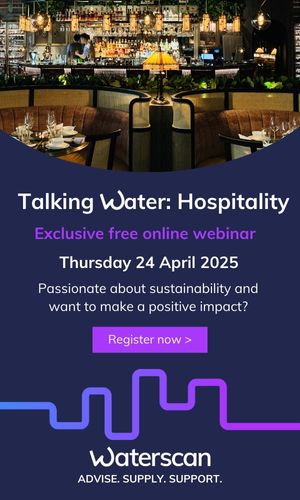Fast food chain Leon has quietly started removing high profile marketing claims for its “carbon neutral burgers”.
The move comes amid increasing criticism of offsetting, and its use in making green claims like carbon neutral. Regulators in the UK and EU have recently announced plans to scrutinise and police such claims more closely.
Leon claimed a first with the launch of its “carbon neutral burgers and fries” in January 2021, with carbon footprints also displayed on its menus.
“Leon is measuring, reducing and offsetting the carbon footprint of their burgers and fries,” noted ClimatePartner, which has worked with the chain on the initiative. Whole supply chain emissions were measured with “the resulting carbon footprint […] offset with rainforest conservation and afforestation projects in Latin America, as well as a progressive new afforestation project in the UK”.
Later that year experts questioned the credibility of the claims and the offsetting schemes that were being used. Leon fiercely disputed accusations that it was using “phantom [carbon] credits”.
But Footprint can reveal the company has now pulled the plug on its carbon neutral initiative. “As of last month, we’ve begun phasing out the carbon neutral messaging across our channels,” said a spokeswoman. The chain has since removed the details from its website.
Critics, including a growing number of NGOs, say carbon neutral and offsetting are greenwashing. The pressure is on regulators now to clamp down on the more dubious claims. Some have even called for bans on the term carbon neutral. “Purporting to be carbon neutral has become a popular marketing strategy for companies seeking to give their image a green makeover while continuing to pollute with impunity,” noted Carbon Market Watch recently.
The European Parliament has just voted in favour of a ban on environmental claims based on offsetting. And reports this week suggested the UK was about to follow suit. The Advertising Standards Authority feels the term carbon neutral is ill-defined, but a spokesperson told Footprint that “no decisions have yet been made on the forms of evidence, including offset schemes, that are more or less likely to be considered as acceptable evidence to substantiate such claims”.
Conflation of the terms carbon neutral and net-zero is also an ongoing issue. Experts at the NewClimate Institute have criticised companies like Nestlé for marketing individual brands with carbon neutral claims. “Communicating to customers and other stakeholders that the production and use of certain products has no impact at all on the climate, i.e. “climate (or carbon) neutral”, is a very bold claim,” the think tank noted in its 2022 corporate climate responsibility monitor. It is misleading, especially if such marketing claims rely on offsetting their actual emissions with credits that lack environmental integrity.”
Leon’s quiet quitting of carbon neutral and the heat from both regulators and campaigners on the term, as well as the offsetting model, could see others reconsider their claims.
Nando’s, Benugo, Sodexo UK&I, Starbucks and Wahaca are among those currently making carbon neutral claims on their products or for their businesses.
Simon Heppner, founder of Net Zero Now and the Sustainable Restaurant Association, said the controversy surrounding offsetting is an “anti-greenwash bandwagon that’s all too easy to jump on”. “Carbon offsets are an essential part of any credible corporate net-zero plan,” he wrote in a piece for Footprint this week, but the market for them is “still evolving”.
“Like many nascent markets, they are still to be found wanting in some aspects of governance and efficiency that develop with maturity,” Heppner added. “But there is nothing to be gained when we allow net-zero ambitions to be thwarted by fear.”
Leon was also approached for details of the net-zero roadmap it promised in 2021, the initial targets for which also appear to have removed from its website too. The fast food chain had committed to be net-zero by 2030.
Leon is currently owned by the billionaire Issa brothers, who also own Asda and the petrol forecourt business EG Group. The spokeswoman for Leon added: “As part of our broader mission, we’re currently reviewing which ESG projects Leon will be supporting for the next twelve months.”









